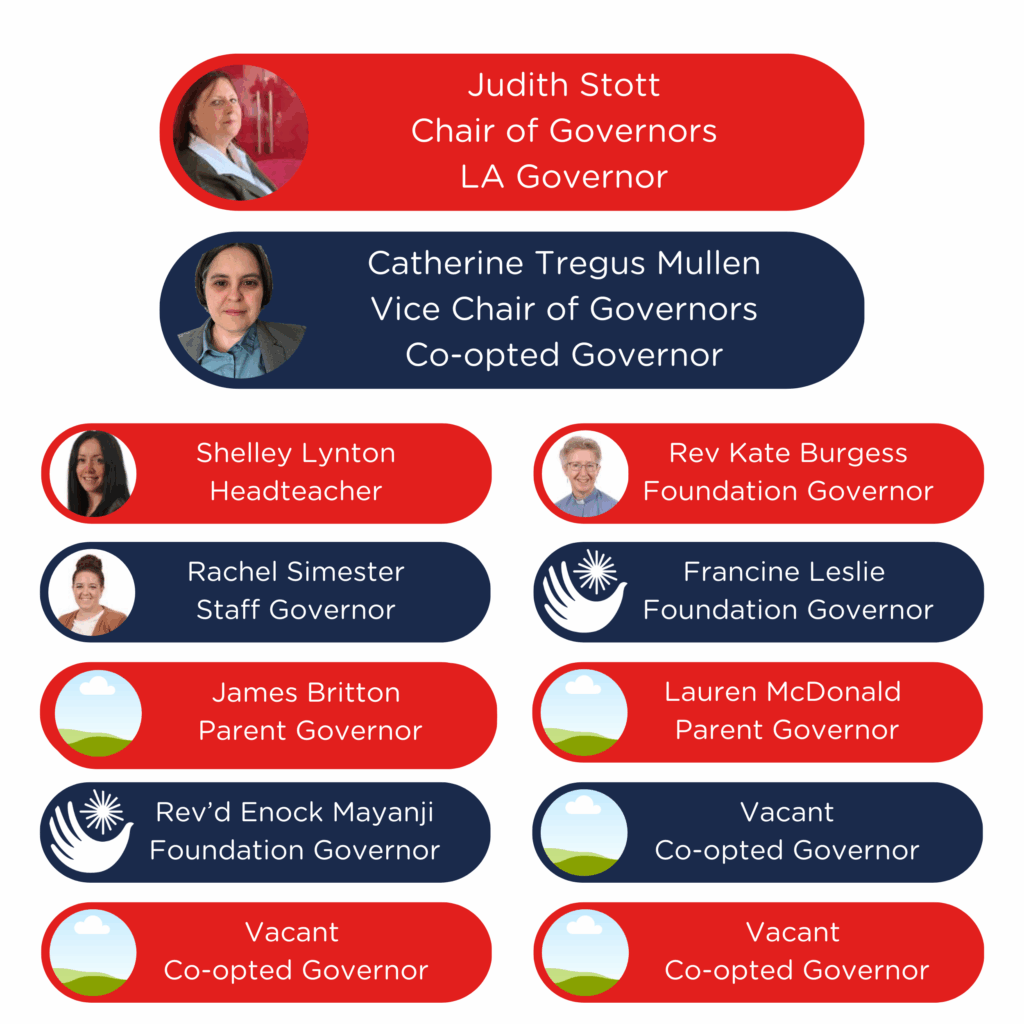Governors have responsibility for the effective management of the school, working within the frameworks set out by Trafford Local Authority, Manchester Diocese and National Legislation.
Governors have a key role to play in helping our school to provide the best possible education for all our children. With their help we can all raise standards and ensure that every child in our school achieves their full potential.
The governing body consists of the Headteacher, a member of the school staff, LA representatives, members co-opted from the local community, representatives from St. Matthew’s Church and parent governors. Each governor serves a four year term and if you are interested in becoming a school governor then please contact school. On this page you will find information about the governance at St. Matthew’s.
Governance Structure
Full Board: The full board of governors meets six times a year as standard. However, there may be additional times when the board meets, for example for the appointment of a new headteacher.
Committees: St. Matthew’s has committees for some aspects of school life: budget setting committee, pay review committee and headteacher performance management committee.
Individual named governors: For areas of school life which are specifically important or where it is a statutory obligation, school has governors with specific oversight and delegated responsibility.
Governor’s Diversity Statement:
The St Matthew’s CE Primary School board of governors recognises’ that our school is at the heart of a diverse and inclusive community. Reflecting this diversity in our governing board allows decisions to be made with input from people with a variety of lived experiences as well as varied skills. This enriches perspectives, fosters inclusivity, and ensures a well-rounded approach to our decision-making, which ultimately improves the educational outcomes for the children.
The board of governors therefore recognises the need to proactively increase our board diversity so that we can be reflective of the community around us. To achieve this, we therefore commit to the below actions:
- Undertake targeted recruitment to address gaps in experience and diversity;
- Address potential ‘blind spots’ through seeking wider advice and perspectives on current and upcoming opportunities, challenges and risks;
- Undertake diversity and inclusivity training to increase awareness and reduce unconscious bias;
- Adapt our board practices, where required, to ensure there are no barriers to participation.
Full details of the our Governance systems and processes can be found here in our Governors handbook
Meet our Governors 2025/26

